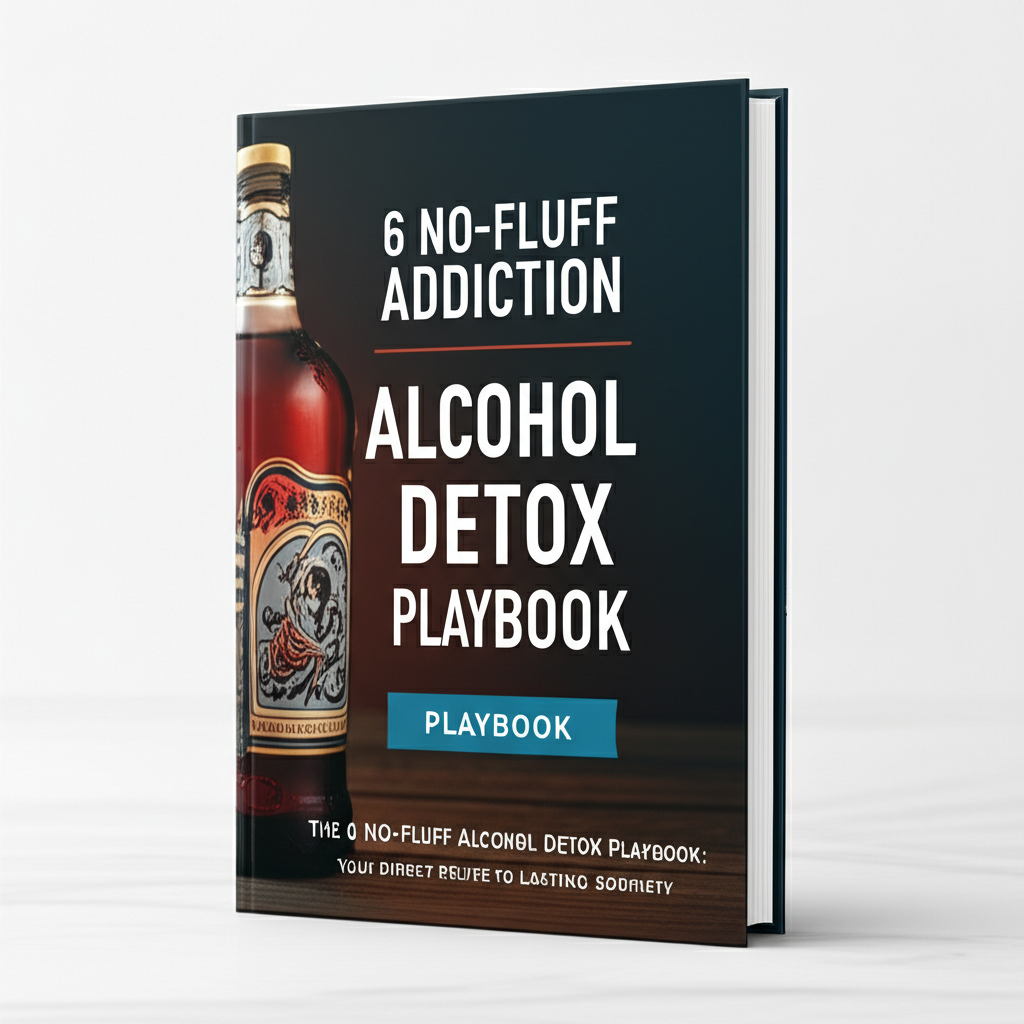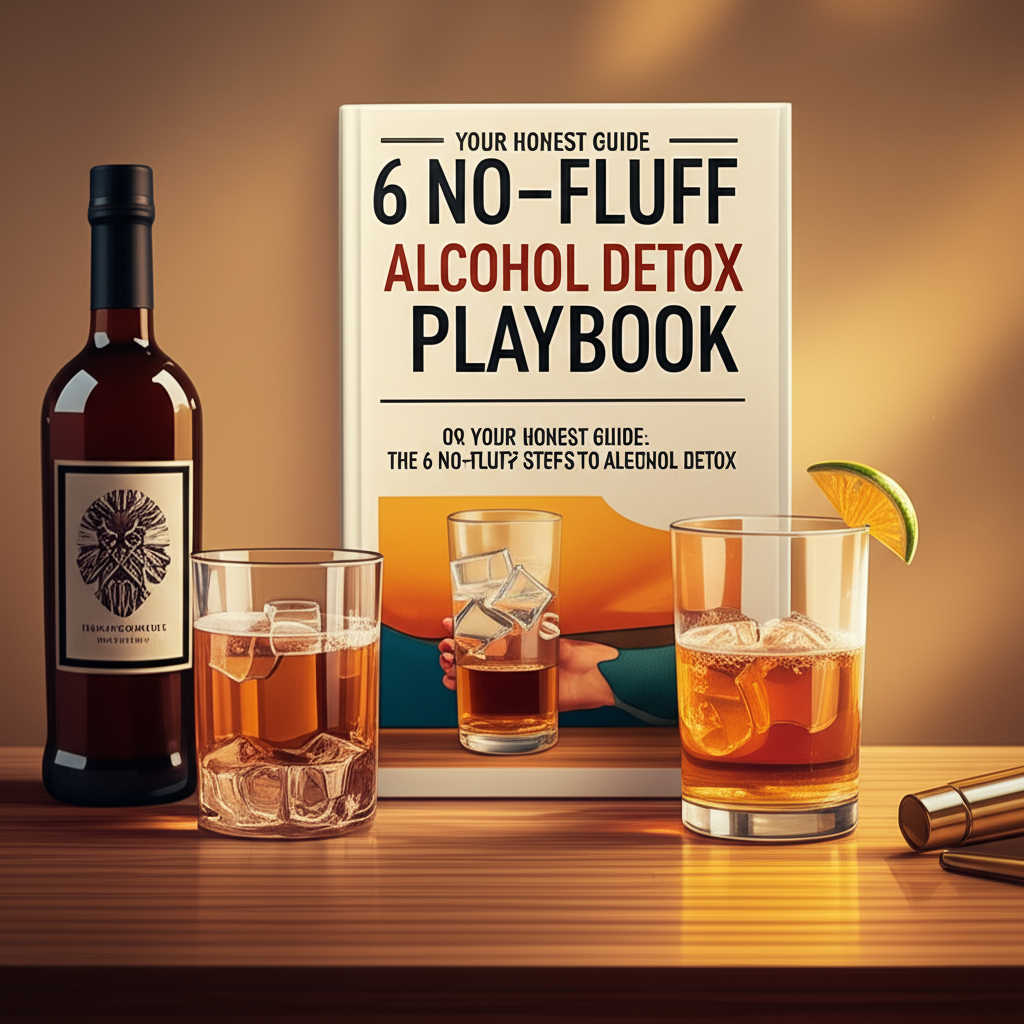The decision to reclaim your life from alcohol addiction is monumental. It’s a brave first step towards a healthier, happier future, and it often begins with detoxification – the process of safely removing alcohol from your body. But detox isn’t just about "stopping drinking"; it’s a complex medical and psychological journey that requires careful planning and professional guidance. Without a clear roadmap, the path can be fraught with danger and relapse.
This comprehensive guide offers a 3-point alcohol detox checklist designed to empower you with the knowledge and preparation needed for a safe, effective, and sustainable start to your sobriety. We’ll break down the essential steps into actionable categories, ensuring you understand not just what to do, but why it’s so critical.
Understanding Alcohol Detox: More Than Just Quitting
Before diving into the checklist, it’s vital to grasp the nature of alcohol dependence and the detox process itself. Alcohol is a central nervous system depressant. Over time, heavy, consistent drinking causes the brain to adapt by increasing excitatory neurotransmitters to compensate. When alcohol is suddenly removed, these excitatory systems go into overdrive, leading to a range of uncomfortable and potentially dangerous withdrawal symptoms.
Why Detox Matters: The Dangers of Unsupervised Withdrawal
Attempting to detox from alcohol alone, especially if you have a history of heavy drinking or prior withdrawal symptoms, can be life-threatening. The dangers include:
- Seizures: Potentially fatal, especially without medical intervention.
- Delirium Tremens (DTs): A severe form of withdrawal characterized by confusion, hallucinations, rapid heart rate, high blood pressure, and fever. DTs can be fatal if untreated.
- Severe Dehydration: Vomiting and sweating can lead to critical fluid and electrolyte imbalances.
- Cardiac Complications: Irregular heartbeats and high blood pressure can strain the cardiovascular system.
- Intense Psychological Distress: Extreme anxiety, panic attacks, depression, and suicidal ideation are common.
A medically supervised detox ensures that these risks are managed, symptoms are alleviated, and your physical and mental health are protected throughout the process.
The General Detox Timeline: What to Expect
While individual experiences vary, a general timeline for alcohol withdrawal can help set expectations:
- 6-12 Hours After Last Drink: Mild symptoms begin.
- Headaches, nausea, vomiting
- Tremors (the "shakes")
- Anxiety, insomnia
- Sweating, heart palpitations
- 12-24 Hours After Last Drink: Symptoms intensify.
- Increased tremors, sweating, heart rate
- Potential for hallucinations (auditory, visual, tactile)
- Panic attacks
- 24-48 Hours After Last Drink: Seizure risk increases.
- Withdrawal seizures can occur suddenly.
- Intense anxiety and agitation.
- 48-72 Hours After Last Drink: Peak of withdrawal, including Delirium Tremens (DTs).
- Severe confusion, disorientation
- Profound hallucinations and delusions
- Rapid heart rate, high blood pressure, fever
- This is the most dangerous phase.
- 3-7 Days After Last Drink: Symptoms gradually begin to subside.
- Physical symptoms lessen.
- Psychological symptoms (anxiety, depression, cravings) may persist for weeks or months.
Understanding this timeline underscores the critical need for professional medical supervision, particularly during the peak withdrawal period.
Checklist 1: The Medical Safety Protocol – Prioritizing Your Physical Health
This is the most critical component of your detox checklist. Your physical safety must be the top priority, and that means engaging with medical professionals from the outset.
1. Professional Medical Assessment is Non-Negotiable
Before you even consider stopping drinking, schedule a comprehensive evaluation with a doctor specializing in addiction medicine, or seek help from a reputable detox center. This assessment will determine the safest and most effective detox plan for you.
What a professional assessment covers:
- Detailed Drinking History: How much, how often, for how long? History of prior detoxes or withdrawal symptoms?
- Medical History: Any underlying health conditions (heart disease, liver issues, diabetes, mental health disorders) that could complicate detox.
- Medication Review: Current prescriptions and over-the-counter drugs, as some can interact negatively with detox medications.
- Physical Examination: To assess your overall health and identify any immediate concerns.
- Blood Tests: To check liver function, electrolyte levels, and other vital indicators.
- Severity of Dependence: Using standardized tools to gauge the level of physical dependence and predict potential withdrawal severity.
Why this is crucial: This information allows medical staff to anticipate potential complications, tailor medication protocols, and recommend the appropriate level of care.
2. Choosing the Right Detox Environment
Based on your medical assessment, a professional will recommend the most suitable setting for your detox. There are primarily two safe options:
-
A. Inpatient Medical Detoxification:
- Description: This involves staying at a specialized facility 24/7, with constant medical supervision.
- Who it’s for: Individuals with moderate to severe alcohol dependence, a history of severe withdrawal symptoms (seizures, DTs), co-occurring medical or mental health conditions, or a lack of stable home support.
- Benefits:
- 24/7 Medical Monitoring: Nurses and doctors are always on hand to manage symptoms and respond to emergencies.
- Medication Management: Access to medications (e.g., benzodiazepines) that safely alleviate withdrawal symptoms and prevent complications.
- Safe Environment: Free from alcohol and triggers, providing a stable, supportive atmosphere.
- Nutritional Support: Proper hydration and nourishment are provided, which is crucial during detox.
- Introduction to Therapy: Many inpatient programs begin introducing therapy and recovery planning even during detox.
-
B. Outpatient Medical Detoxification:
- Description: You live at home but attend regular, often daily, appointments at a clinic for medical checks, medication dispensing, and support.
- Who it’s for: Individuals with mild to moderate dependence, no history of severe withdrawal, good overall health, a stable and supportive home environment, and reliable transportation.
- Benefits:
- Flexibility: Allows you to maintain some daily responsibilities (work, family).
- Cost-Effective: Generally less expensive than inpatient care.
- Comfort of Home: Some prefer to detox in their own environment.
- Important Note: Outpatient detox is only recommended for those deemed low-risk by a medical professional. If your symptoms worsen or become unmanageable, you must be prepared to transition to inpatient care immediately.
Crucial Warning: DO NOT attempt "cold turkey" or "DIY" home detox without medical supervision, especially if you have significant alcohol dependence. The risks far outweigh any perceived benefits.
3. Managing Withdrawal Symptoms: Medications and Supportive Care
During detox, medical professionals will employ strategies to keep you safe and comfortable:
- Pharmacological Support: Medications are often prescribed to reduce the severity of withdrawal symptoms, prevent seizures, and alleviate anxiety. Common medications include:
- Benzodiazepines (e.g., Ativan, Valium, Librium): The gold standard for alcohol withdrawal, these medications help calm the central nervous system.
- Anti-emetics: To manage nausea and vomiting.
- Beta-blockers: To help with heart rate and blood pressure.
- Hydration and Nutrition: IV fluids may be administered to prevent dehydration and correct electrolyte imbalances. Nutritional supplements, particularly B vitamins (like thiamine), are vital to prevent neurological complications.
- Monitoring Vital Signs: Regular checks of heart rate, blood pressure, temperature, and respiration ensure any complications are identified and addressed promptly.
- Comfort Measures: A quiet, low-stimulus environment, comfortable bedding, and emotional support can significantly aid in managing discomfort and anxiety.
Checklist 2: The Mental & Emotional Preparation – Fortifying Your Inner Resolve
Detox is not just a physical process; it’s an intense emotional and psychological challenge. Preparing your mind and spirit is just as important as preparing your body.
1. Understanding the Emotional Rollercoaster
Expect a wide range of emotions during detox and early recovery. These feelings can be overwhelming, but recognizing them as part of the process can help you cope.
Common emotional experiences:
- Intense Anxiety and Panic: Your brain is readjusting, leading to heightened stress responses.
- Depression and Sadness: A common withdrawal symptom, often exacerbated by the reality of facing life without alcohol.
- Irritability and Mood Swings: Your emotional regulation system is temporarily out of balance.
- Guilt and Shame: Reflections on past behaviors can be painful.
- Cravings: Intense urges to drink will likely occur, especially in the early stages.
- Difficulty Concentrating: Cognitive function can be impaired.
- Sleep Disturbances: Insomnia or vivid nightmares are common.
Strategy: Acknowledge these feelings without judgment. Remind yourself that they are temporary withdrawal symptoms and that seeking help for emotional distress is a sign of strength, not weakness.
2. Building a Robust Support System
You cannot, and should not, do this alone. A strong support network is a lifeline during detox and throughout recovery.
Key components of your support system:
- Trusted Friends and Family: Inform a few close, supportive individuals about your decision to detox. They can offer encouragement, practical help, and a listening ear. Ensure they understand the importance of not bringing alcohol into your environment.
- Support Groups: Begin exploring groups like Alcoholics Anonymous (AA), SMART Recovery, or similar peer-led programs. Attending online or in-person meetings, even before detox, can provide immense comfort and connection. Hearing others’ stories and realizing you’re not alone is incredibly powerful.
- Therapists and Counselors: A mental health professional specializing in addiction can provide invaluable tools for coping with cravings, managing emotional distress, addressing underlying issues, and developing relapse prevention strategies. Starting therapy before or immediately after detox is highly recommended.
- Sponsor/Mentor: In 12-step programs, a sponsor is someone who has navigated recovery successfully and can guide you through the steps and offer personal support.
Action Point: Identify at least 3-5 people or resources you can call upon for support during challenging moments.
3. Developing Healthy Coping Mechanisms
During detox, you’ll be without your usual coping mechanism (alcohol). It’s crucial to have alternatives ready.
Examples of healthy coping strategies:
- Mindfulness and Meditation: Learning to observe thoughts and feelings without reacting can be incredibly helpful for managing anxiety and cravings.
- Deep Breathing Exercises: Simple yet effective for calming the nervous system.
- Light Physical Activity (if medically cleared): Walking, gentle stretching, or yoga can release endorphins and reduce stress.
- Engaging Hobbies: Distraction is a powerful tool. Reconnect with old hobbies or explore new ones that are incompatible with drinking (e.g., reading, painting, playing music, puzzles).
- Journaling: Writing down your thoughts and feelings can provide an outlet and help process emotions.
- Setting Realistic Expectations: Understand that recovery is a marathon, not a sprint. There will be good days and bad days. Progress is not always linear.
- Positive Affirmations: Remind yourself of your strength, your reasons for getting sober, and your commitment to a healthier future.
Checklist 3: The Practical & Logistical Framework – Setting Up for Success
While often overlooked, practical preparations can significantly reduce stress and minimize obstacles during detox and early recovery.
1. Preparing Your Environment for Sobriety
Your immediate surroundings play a huge role in your ability to stay sober.
- Remove All Alcohol: This is non-negotiable. Get rid of every bottle, can, or hidden stash in your home, car, and workplace. Ask family members to do the same or keep their alcohol out of sight.
- Eliminate Triggers: Identify places, people, or situations that strongly associate with drinking and avoid them, at least initially. This might mean temporarily staying away from certain friends, bars, or even specific routes you used to take to buy alcohol.
- Create a Soothing Space: Designate a comfortable, peaceful area in your home where you can relax, read, or meditate.
- Stock Up on Comfort Items: Have plenty of healthy snacks, hydrating beverages (water, herbal tea, sparkling water), comforting blankets, books, movies, or anything that brings you calm and distraction.
2. Arranging Time Off and Responsibilities
Detox is physically and emotionally demanding. You need to clear your schedule and minimize external pressures.
- Work Leave: Discuss your need for time off with your employer. You may be able to use sick leave, vacation time, or FMLA (Family and Medical Leave Act) if applicable. You do not necessarily have to disclose the reason, but you might choose to confide in a trusted HR representative or manager.
- Childcare/Dependent Care: Arrange for reliable care for children or other dependents during your detox period. This ensures you can focus entirely on your recovery without added stress.
- Financial Planning: Consider how you will manage bills and expenses during your time away. Having a plan in place can reduce anxiety.
- Pet Care: Ensure your pets are cared for, whether by a family member, friend, or professional pet sitter.
Tip: Try to complete these arrangements well in advance so you don’t have last-minute stressors as you begin detox.
3. Post-Detox Planning: Laying the Foundation for Long-Term Recovery
Detox is merely the first step. The real work of recovery begins after alcohol has left your system. Having a plan for ongoing support is crucial to prevent relapse.
- Further Treatment Options:
- Residential Treatment (Rehab): For many, transitioning from detox directly into a residential treatment program is highly effective. These programs provide intensive therapy, education, and a supportive community.
- Intensive Outpatient Programs (IOP) or Partial Hospitalization Programs (PHP): Offer structured therapy and support while allowing you to live at home.
- Ongoing Therapy: Individual and group therapy sessions are vital for addressing the root causes of addiction, developing coping skills, and processing emotions.
- Continued Support Group Engagement: Regularly attending AA, SMART Recovery, or other peer support meetings provides ongoing accountability, shared experience, and encouragement.
- Relapse Prevention Strategies: Work with your therapist or support group to identify your personal triggers and develop concrete strategies for managing cravings and high-risk situations. This includes having a plan for who to call and what to do if you feel tempted to drink.
- Sober Living Environments: For some, transitioning to a sober living home after inpatient treatment provides a structured, supportive, and alcohol-free environment while reintegrating into daily life.
- Healthy Lifestyle Maintenance: Continue to prioritize balanced nutrition, regular exercise, adequate sleep, and stress-reduction techniques. These are fundamental to sustained well-being and sobriety.
Conclusion: Your Journey to a Healthier Life Begins Now
Embarking on alcohol detox is an act of immense courage and self-love. By meticulously following this 3-point checklist – prioritizing your medical safety, fortifying your mental and emotional resilience, and establishing a robust practical framework – you are not just preparing to stop drinking; you are laying a solid foundation for a lifetime of sobriety and well-being.
Remember, you don’t have to face this challenge alone. Professional help is not just recommended; it is often essential for a safe and successful detox. Reach out to a doctor, an addiction specialist, or a reputable detox center today. Take that brave first step, and reclaim the vibrant, fulfilling life you deserve.








